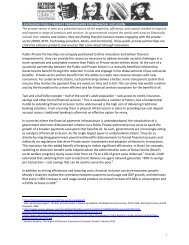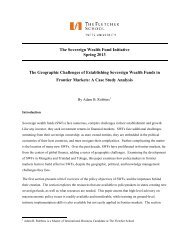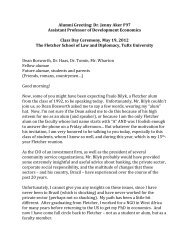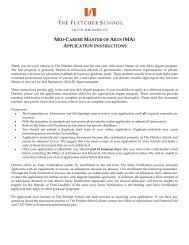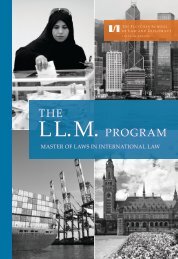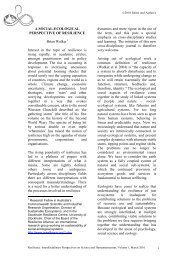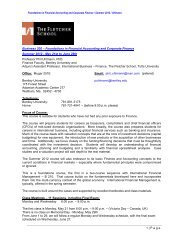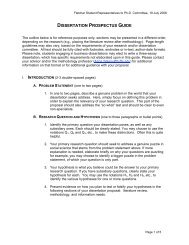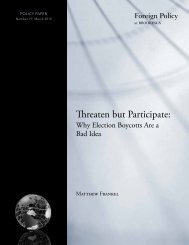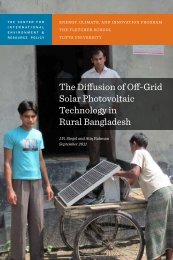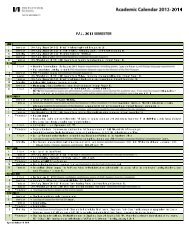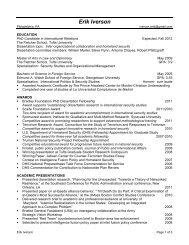creating a mutual Gains climate regime through universal clean ...
creating a mutual Gains climate regime through universal clean ...
creating a mutual Gains climate regime through universal clean ...
Create successful ePaper yourself
Turn your PDF publications into a flip-book with our unique Google optimized e-Paper software.
Creating a Mutual <strong>Gains</strong> Climate Regime Through Universal Clean Energy ServicesThe legal foundation for the right to access <strong>clean</strong> energy services lies in theirimportance in resolving both poverty and environmental degradation. These linkswere explicitly acknowledged at the 2002 World Summit on Sustainable Development.The Johannesburg Plan on Implementation adopted at the Summit conceptualizesaccess to energy services as a prerequisite for realizing basic human needs includingthose defined in the UN Millennium Development Goals. The Plan calls for increasingenergy efficiency, decreasing energy consumption, and transitioning to <strong>clean</strong>er energysystems, and also calls for removing harmful subsidies. Efforts to translate access toenergy services from a theoretical concept and a broad policy goal into practice havebeen improving. Studies measuring access to energy services (Bazilian et al., 2010)and attempts to frame the UN global target for <strong>universal</strong> access to energy services by2030 (AGECC, 2010) are cases in point. However, only access to ‘<strong>clean</strong>’ energy servicescan enable people to realize their right to development and their human rights moregenerally while providing <strong>climate</strong> mitigation and adaptation responses (Orellana, 2010).The norm of a <strong>universal</strong> right of access to <strong>clean</strong> energy services can be actively built byalready existing norm entrepreneurs, such as those countries already implementingfeed-in laws and the communities where a renewable pathway is cheaper and easier(e.g. rural electrification in developing countries). The parties to the UNFCCC needto explicitly acknowledge that it is the right of every person and the goal of the treaty toprovide all persons with access to low-carbon <strong>clean</strong> energy services in a manner that doesnot jeopardize the <strong>climate</strong> system or decrease the ability of the environment to continuesupplying ecosystem services. This right must be actively constructed and promoted atboth national and international levels.16 Center for International Environment and Resource Policy, The Fletcher School, Tufts University



